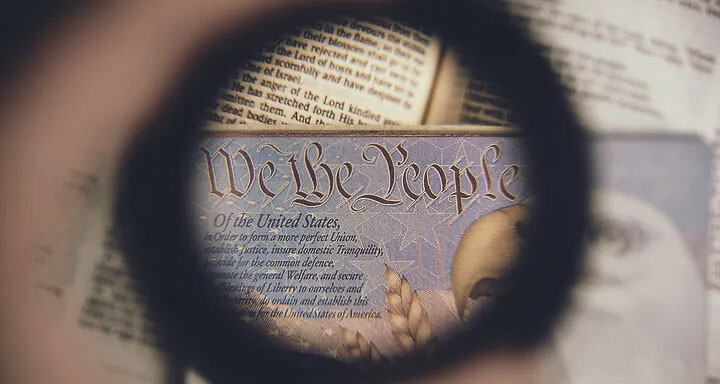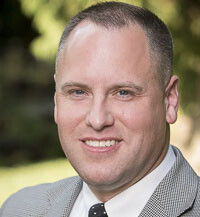
Chris Cargill of the Mountain States Policy Center suggests we remember there’s a reason the people, via the legislative branch, come first in our founding documents
Chris Cargill
Mountain States Policy Center
There’s a reason it comes first. Article One, Section One of the U.S. Constitution says, “all legislative powers shall be vested in a Congress of the United States.”
State Constitutions follow a similar path, vesting first powers in the people via their elected representatives – before anything or anyone else.

Policymaking is the exclusive prerogative of the legislative branch of our government. But over the past few decades, a virus of executive overreach and lawmaking from the bench seems to have sullied the notion of separation of powers.
The consistent and appropriate theme from recent U.S. Supreme Court decisions has been a return to a constitutional framework for making laws.
The recent court ruling on the Biden Administration’s attempt to forgive $430 billion in student loans serves as an example.
Congress never approved such a policy. In fact, former Speaker of the House Nancy Pelosi said, “People think that the President of the United States has the power for debt forgiveness. He does not. He can postpone. He can delay. But he does not have that power. That has to be an act of Congress.”
Initially, even President Biden acknowledged this fact when he said in a February 2021 town hall when asked if he can cancel student debt, “Because I don’t think I have the authority to do it by signing the pen.”
Despite this, the President moved forward unilaterally with the policy. The White House was using an interpretation of a 2003 law to justify the debt forgiveness. Much to the dismay of activists and some politicians, the Supreme Court said the Administration didn’t have authority to do that.
Specifically, justices have been relying on something called the “major questions doctrine.” Put simply, it asks whether Congress has clearly delegated authority to resolve major policy questions. If it hasn’t, then Congress must decide the issue.
Immediately after the student loan forgiveness case was announced, the President tweeted “student loan relief is good for working and middle-class Americans. It’s good for our economy. It’s good for our country.”
That may or may not be true, but the constitutional way to pass such a policy is via the people’s elected representatives.
The same can be said for other recent controversial cases. If you want affirmative action, pass a constitutional amendment. If you believe in capping greenhouse gasses, convince enough of your fellow citizens and lawmakers to pass a law, and get the president to sign it.
If you can’t convince your fellow lawmakers, you have the authority to vote those lawmakers out of office.
Throughout the COVID pandemic and even since, state governors have sought to use more executive power. In Washington state, Governor Jay Inslee held on to emergency powers for nearly 1,000 days. Many other states moved to rein in their executives with new laws that required emergency orders to receive legislative approval after a certain period of time.
When Donald Trump ran for president in 2016, he was rightly criticized for proclaiming about the nation’s problems that, “I alone can fix it.” Our constitution does not give any one person the authority to fix anything.
The judicial and executive branches are not responsible for implementing a preferred policy simply because going through the normal constitutional process is too cumbersome.
Let’s remember there’s a reason the people, via the legislative branch, come first in our founding documents.
Chris Cargill is the founder, president and CEO of the Mountain States Policy Center.
Also read:
- Opinion: OIC tells consumers not to pay for ‘insurance’ you won’t likely benefit from: Does that include WA Cares?Elizabeth New (Hovde) of the Washington Policy Center believes you should consider yourself warned by the Office of the Insurance Commissioner about WA Cares and its maybe-only benefit.
- Opinion: Same road, different speed limit?Target Zero Manager Doug Dahl addresses a question about speed limit signs going into and leaving town.
- Opinion: Hiding the growing cost of the Interstate Bridge replacementJoe Cortright of the City Observatory addresses the rising cost of the Interstate 5 Bridge replacement project.
- Letter: ‘This election I am NOT voting for Greg Cheney’Clark County resident Wynn Grcich shares her thoughts on Rep. Greg Cheney and the issue of fluoridation in area drinking water.
- POLL: Should biological males who identify as females be allowed to compete in athletic events against biological females?Should biological males who identify as females be allowed to compete in athletic events against biological females?










